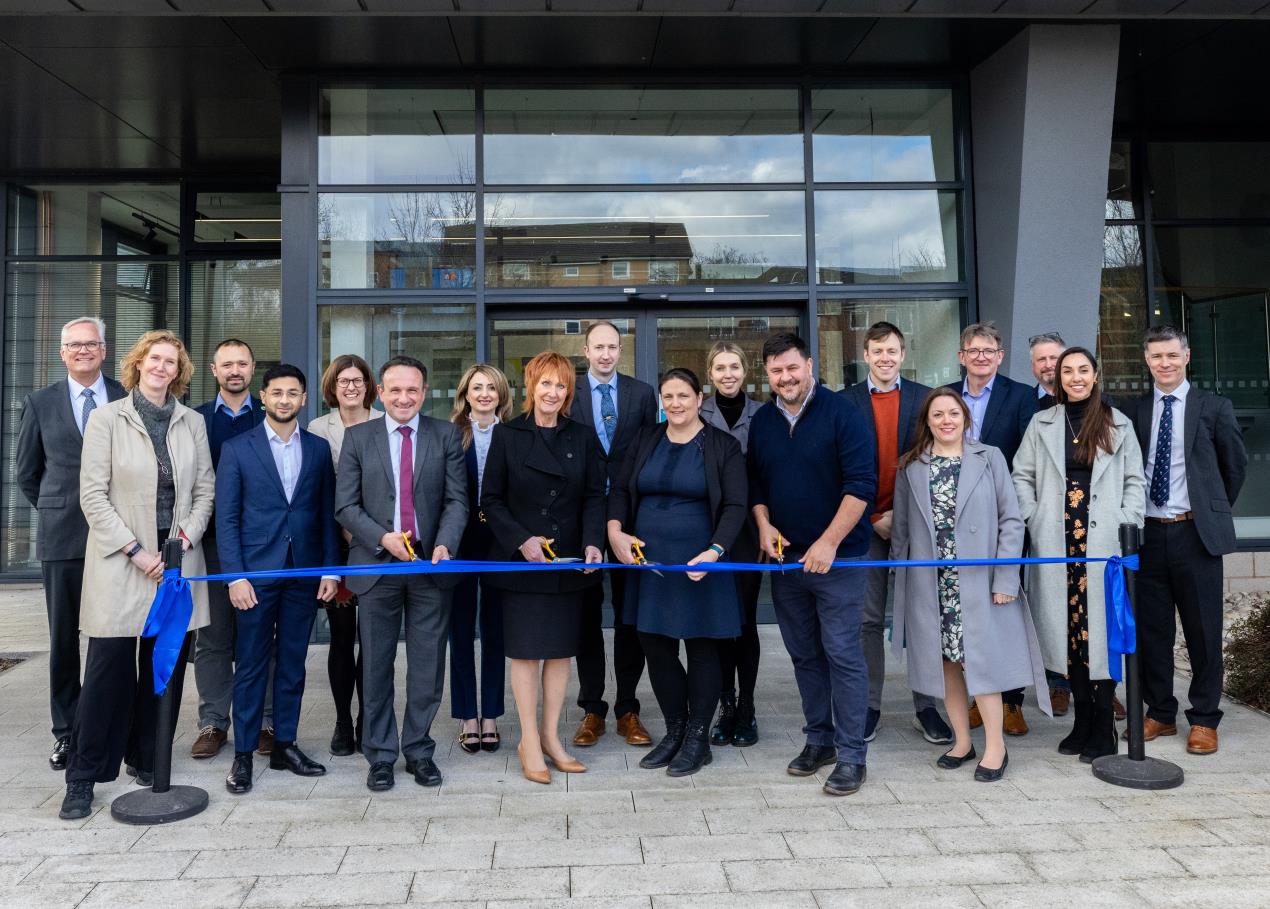UK Government reduces bureaucracy for apprenticeships

Image by Skyshark Media / copyright Shutterstock
Rules slowing down the training of workers in key industries like construction will also be changed as the government reveals plans to turbocharge growth industries with reduced bureaucracy for apprenticeships and new leadership also appointed for Skills England.
Leading employers have been calling for these changes. Businesses will now be able to decide whether adult learners over the age of 19 when they start their apprenticeship course will need to complete a level 2 English and maths qualification (equivalent to GCSE) in order to pass it. This means more learners can qualify in high demand sectors.
This could mean as many as 10,000 more apprentices per year will be able to complete their apprenticeship, unlocking opportunity in communities all over the country and breaking the link between background and success. It does not mean that apprentices won’t be assessed on core English and maths skills relevant to their occupation but it does mean that apprentices will be able to focus more on their paid work.
The minimum duration of an apprenticeship will be reduced to eight months, down from the current minimum of 12 months.
Secretary of State for Education, Bridget Phillipson said: "Growing the economy and opportunity for all are fundamental Missions of our Plan for Change and we are determined to support apprentices throughout this National Apprenticeship Week and beyond.
"Businesses have been calling out for change to the apprenticeship system and these reforms show that we are listening. Our new offer of shorter apprenticeships and less red tape strikes the right balance between speed and quality, helping achieve our number one mission to grow the economy.
"Skills England will be a major driver in addressing the skills gaps needed to support employers up and down the country and I look forward to working with the new leadership."
Craig Beaumont, Executive Director, Federation of Small Businesses said: "It’s encouraging to see Government shorten the length of apprenticeships, and give employers the right to decide whether Level 2 English and Maths is needed. These flexibilities should help SME employers fill skills gaps faster."
These announcements come as the Education Secretary kicked off National Apprenticeship Week yesterday, which celebrates the achievements of apprentices around the country and the positive impact they make to communities, businesses and the wider economy.
The plans also follow the Prime Minister’s announcement in October, when he pledged to reform the new growth and skills offer to ensure young people are better supported.
Three trailblazer apprenticeships in key shortage occupations will look to pioneer the new shorter apprenticeship approach, with apprentices in green energy, healthcare and film/TV production set to be able to take on these new courses.
Changes to the minimum length of an apprenticeship will be introduced from August 2025 subject to the legislative timetable, with changes to English and maths requirements coming into effect immediately. This will be hugely beneficial to employers in sectors like construction which have an urgent need for qualified workers, helping to meet the government’s mission to build 1.5 million homes by the end of this parliament.
The Education Secretary, Bridget Phillipson, has also announced that Phil Smith CBE will chair Skills England, the new nationwide body for skills, with Sir David Bell serving as Vice Chair. Tessa Griffiths and Sarah Maclean will jointly serve as CEO, while Gemma Marsh will serve as Deputy CEO.
Phil Smith is the former chair and CEO of international tech and telecoms giant Cisco. He brings extensive industry experience in digital, tech and innovation leadership and his appointment signals the seriousness of the government’s plan for growth, unlocked via a national vision for skills.
Sir David Bell has four decades of experience in the education and skills sector and is currently Vice-Chancellor and Chief Executive of the University of Sunderland
Phil Smith CBE said: "I know from my time in industry how valuable direct engagement from employers can be in shaping government policy.
"We need a dynamic skills system that can drive economic growth, and I’m excited to be involved in shaping Skills England as part of that."
Sir David Bell said: "I look forward to working with Phil Smith, other colleagues in Skills England and the Department for Education to help deliver economic growth and meet the nation’s skills needs.
"I know from my experience in public policy and higher education that providing the skilled workforce which Britain requires depends on industry, government and education organisations working together. I am very confident therefore that Skills England will provide the strategic oversight to make that happen."
Skills England will bring together key partners to meet the skills needs of the next decade across all regions of England. More than 700 stakeholders have already been engaged through roundtables, webinars and engagement events.
It will work with employers, national, regional and local government, providers and unions to identify skills shortages and provide strong strategic direction for the skills system.
One of Skills England’s first orders of business will be to identify which apprenticeships would be best served by the shorter duration approach. Skills England will prioritise key shortage occupations as per the industrial strategy, helping to boost growth underthe government's Plan for Change.
Euan Blair MBE, founder and CEO, Multiverse said: "This important announcement will do so much to widen and expand access to apprenticeships and should be welcomed as a move to put our skills system at the heart of the growth Mission. For years this requirement has created an artificial barrier between apprenticeships and those who could benefit from them, including young people from disadvantaged backgrounds and older workers whose roles are at risk of job displacement, while often diluting the quality and purpose of an apprenticeship. Apprenticeships are about giving as many people as possible the ability to improve their career prospects and contribute meaningfully to their employers: this move helps to underline that focus."
Alex Hall-Chen Principal Policy Advisor, Sustainability, Skills and Employment said: "Apprenticeships are a vital tool in tackling the UK’s persistent skills shortages, and this announcement is a welcome step in removing unnecessary barriers to increasing apprenticeship numbers.
"Research with IoD members clearly showed that giving employers flexibility when it comes to English and Maths qualifications for adult apprentices has the potential to unlock more apprenticeship opportunities.
"Employers are well-placed to judge whether English and Maths qualifications are the most appropriate route to evidence or develop the literacy and numeracy skills needed for success in the given career path."
Matthew Percival, Future of Work and Skills Director, CBI said: "Apprenticeships have an important role to play in building the skills for growth. Greater flexibility on minimum length and on English and Maths requirements will help businesses to offer more workers the opportunity to add to their skills."
Kate Ambrosi, Chief Executive of the Baker Dearing Educational Trust, commented: "We welcome the additional flexibility that these changes will give employers to develop their workforce and drive economic growth.
"The education provided by our University Technical Colleges is designed with local employers to be as flexible as possible for them, while also ensuring students are provided with the right technical knowledge and employability skills.
"Last summer, a fifth of Year 13 UTC leavers progressed onto apprenticeships in sectors including green energy, healthcare and creative media. A key reason for this was because they had that strong foundation in knowledge and skills. It is important that employers ensure apprentices have a strong basis in English and maths so they can progress in their careers.
"Two-thirds of the apprenticeships started by UTC leavers are at the higher or degree level and it is especially important for upper apprenticeship levels that this new minimum duration is treated as a starting point, not a target. People learn and develop at different rates and they should not be rushed through their training."













